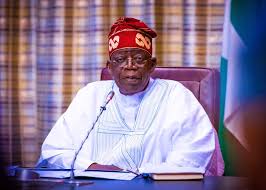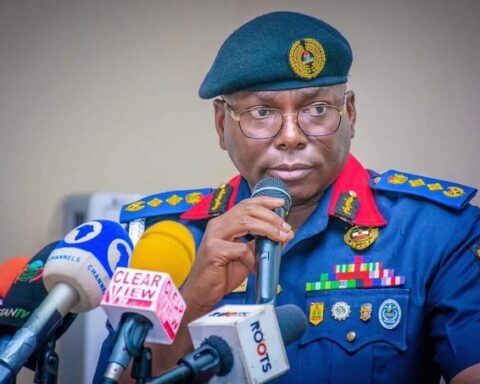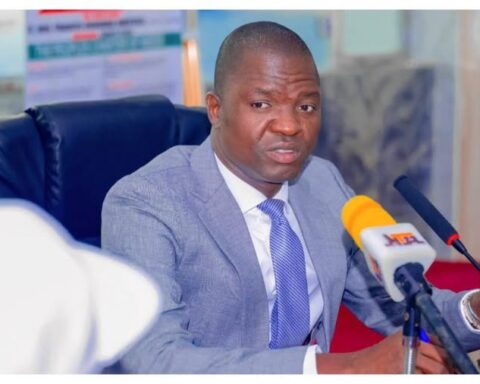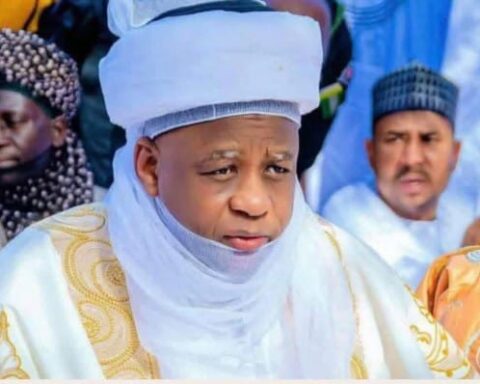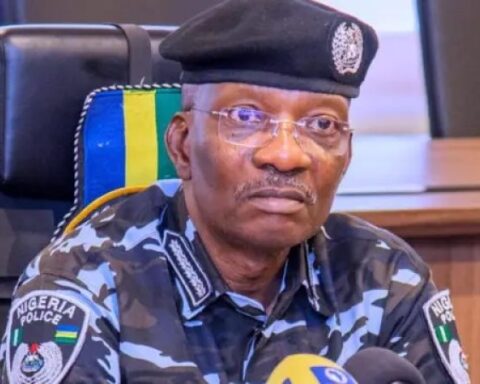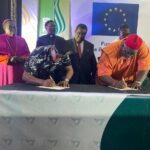The morning dawned crisp over Abuja. The flag of green, white, and green fluttered in gentle wind at Eagle Square, where thousands had gathered despite the early hour: civil servants, students, veterans, market women, youths in uniforms, and guardians keeping order. Every seat was filled. The air hummed with anticipation. Headlines earlier had promised a speech of promise and accountability. All eyes were on the dais draped in ribbons and national colors.
The national anthem “Nigeria, We Hail Thee” rose in voices united. The military band’s clarion brass gave way to respectful silence. President Bola Ahmed Tinubu stepped forward, robes dark, posture straight, wearing the weight of history and expectation on his shoulders. Cameras, smartphones, reporters from every local and international outlet—all bore witness.
Fellow Nigerians, on this 65th anniversary of our independence, I stand before you humbled by the trust you place in me, mindful of the challenges we share, and confident in our capacity to prevail.”
He traced Nigeria’s journey from colonial chains to self-rule, invoking the memory of founding icons whose dreams were of unity, dignity, and self-reliance. He reminded listeners of the many trials—civil war, economic collapses, military interludes—but emphasized that Nigeria had endured.
We accepted from you a nation at fiscal crossroads, beset by insecurity, inflation, and infrastructure decay. We pledged renewal, rooted in honesty, competence, and the common good. That pledge remains.”
He acknowledged sharply the daily pains: rising cost of essentials, unemployment, power outages, dilapidated roads. “I know your struggle,” he said. “I feel it with you. No leader can govern in a vacuum of denial.”
But this address was not to dwell only on fault. He laid out achievements — real, contested, and aspirational. He spoke of growth in certain sectors, a rebound in foreign investment, stabilization of reserves, and progress in security enclaves. He claimed that “the worst is over” and that the hard months of reform were yielding early harvests. (Indeed, in real life on the 65th Independence Day, he did assert that “the worst is over.”)
A massive rural electrification push, partnering with private investors, aiming to light up thousands of villages.
A new youth empowerment program, promising internships, grants, and digital skills training—targeted especially at regions left behind.
Deepening agricultural support: accessible credit, mechanization, fertilizer subsidies, with the goal of reducing food import dependency.
Strengthening accountability measures: more transparent budgeting, audits open to the public, and a new citizen-reporting portal to track local government performance.
He didn’t shy from critique. He urged state and local governments not to wait for the center to act but to seize their own mandate. He warned that public servants found grafting would be removed, no matter their titles.
We are many tongues and creeds, many histories and landscapes—but we are one people. The injustices of region, religion, and ethnicity must no longer divide us. I call on every youth, mother, laborer, entrepreneur, soldier, and scholar to remember: Nigeria is bigger than every grievance.”
He paid tribute to security forces, recognizing the lives lost in efforts to restore peace in troubled zones. He pledged intensified efforts to reclaim territories from insurgency, banditry, kidnappers, and to bring lasting justice.
Our children deserve schools that teach, hospitals that heal, roads that endure, water that flows, and opportunities that dignify. Let us together build that tomorrow.”
Thank you, my beloved Nigeria, for your patience, for your courage, and for your hope. Let us press forward with faith renewed. May God bless our land, and may we renew our commitment to the dream of a greater Nigeria. Happy 65th Independence Day!”
As his voice echoed, people rose to their feet, many moved to tears, others sobbing, applauding, calling out “Amen! Amen!” The band resumed, the flag fluttered higher, and the crowd sang. In that moment, many felt the mixture of longing and possibility: the promise of a new chapter, tempered by the weight of tasks ahead.
But beyond the pageantry and emotion, watchers and listeners would debate: which promises are real, which are symbolic, and which are yet to come. In homes, on social media, in markets, people would replay lines, question claims, hold leaders to account. Because in Nigeria, the independence address is more than a speech — it is a mirror, a challenge, and a promise in one.
